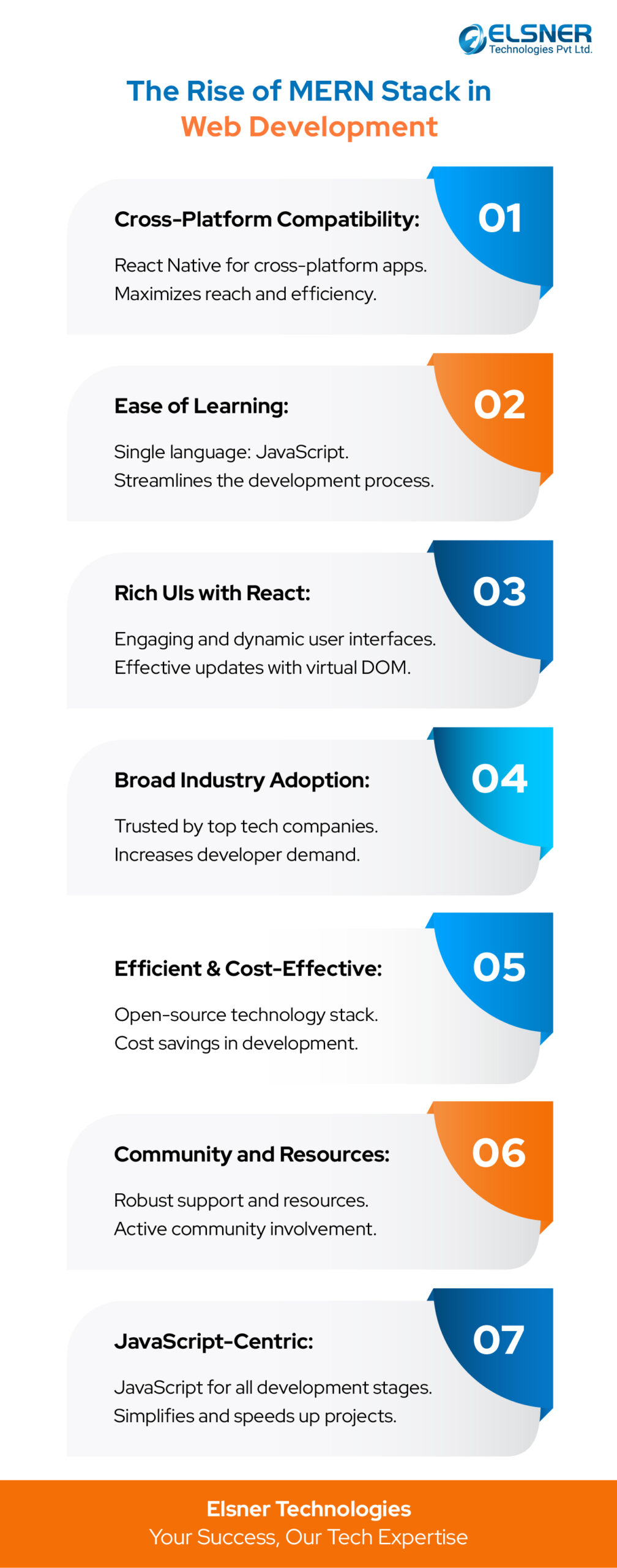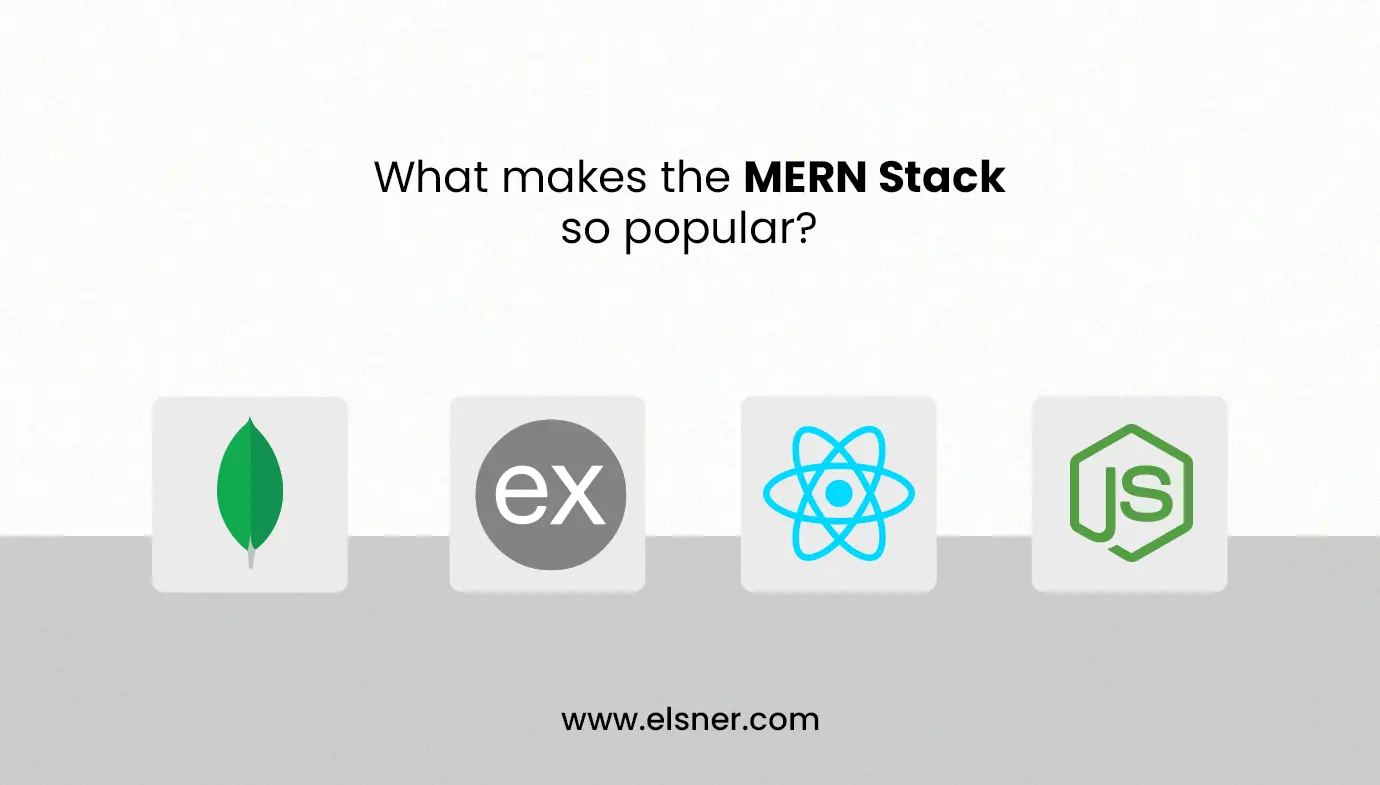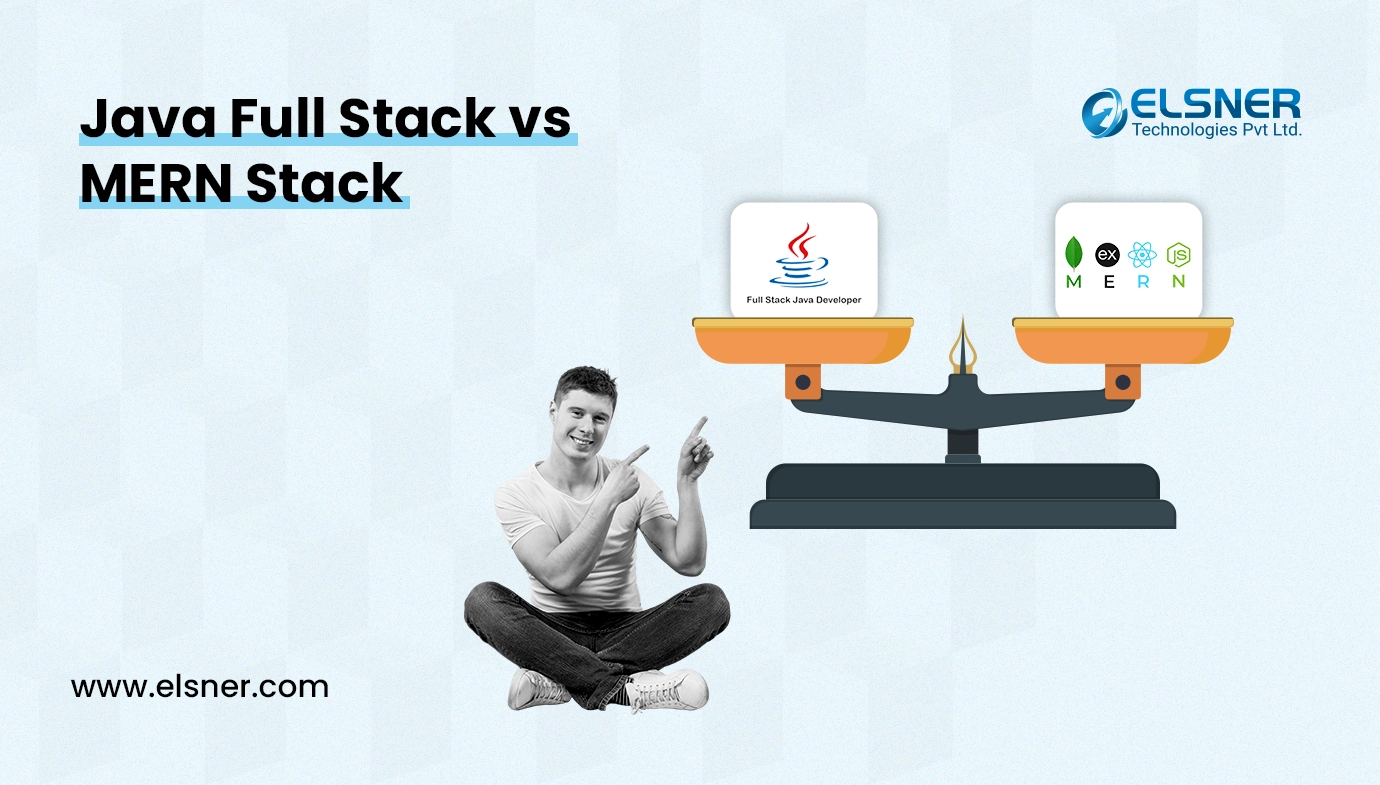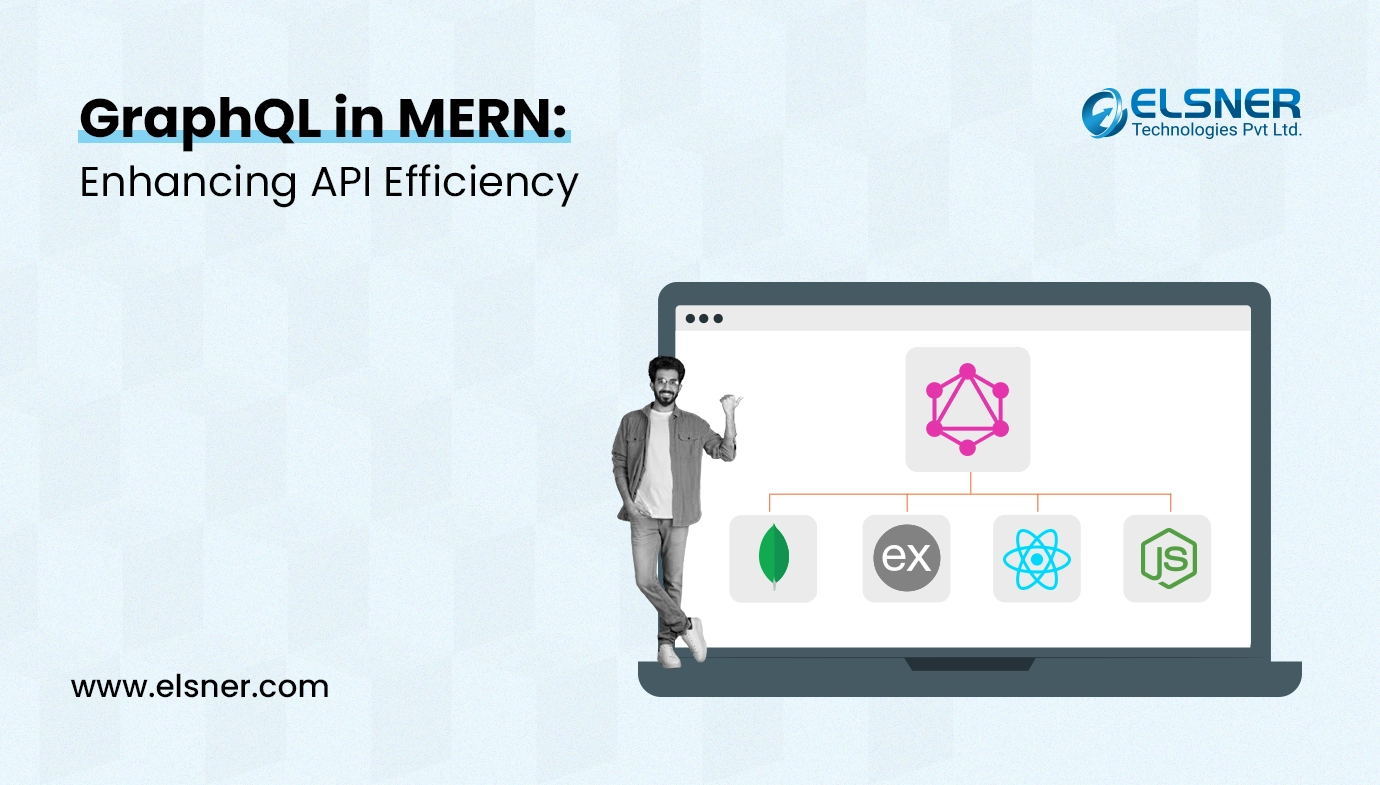- What is MERN Stack?
- MongoDB: The NoSQL Database
- Express.js: The Backend Framework
- React.js: The Frontend Library
- Node.js: The Runtime Environment
- What are the Key Advantages You Can Reap by Employing the MERN Stack?
- Swift Development
- Full-Stack JavaScript Development
- Real-Time Capabilities
- Scalability
- What Contributes to the Popularity of MERN Stack in Web Development?
- Cross-Platform Compatibility
- Easy to Learn and Deploy
- Rich User Interfaces with React
- Industry Adoption
- An Efficient and Cost Effective Solution
- Active Open-Source Community
- What are the Skills One Must Have to Become a MERN Full Stack Developer?
- React
- JavaScript (ES6+)
- Node.js
- MongoDB
- Express.js
- Database Management
- Version Control/Git
- RESTful API Design
- Front-end Technologies
Are you planning to enter the exciting world of website development? If so, it becomes crucial for you to keep up with the most updated technologies to survive the fierce competition in this field. The MERN Stack is one such technological marvel that has emerged as an excellent choice for organizations and developers.
But, have you ever thought about what contributes to the continuously rising popularity of MERN Stack? We have developed this guide to inform you about this in detail. So, let’s get started:
What is MERN Stack?
Before we dive into our main discussion, it is crucial to get an understanding of what MERN Stack is all about. The MERN Stack is a popular combination of technologies typically employed for building dynamic web applications. It mainly comprises four key components, which are as follows:
MongoDB: The NoSQL Database
MongoDB refers to a document-oriented NoSQL database that stores data in flexible and JSON-like documents. This database management system helps in offering both flexibility and scalability, which makes it ideal for applications where the data structure may evolve over time. It is again known for its potential to handle extensive volumes of unstructured data.
Express.js: The Backend Framework
Express.js is another significant component of the MERN stack. It is a flexible and minimalist Node.js web application framework. The best part about this framework is that it offers a solid set of features that facilitates the effortless building of mobile and web applications.
Express.js also helps streamline the process of creating a robust backend by providing a range of tools and middleware. All of these help in the efficient handling of tasks such as routing and managing responses, requests, and sessions.
React.js: The Frontend Library
React.js is known to be a powerful JavaScript library that is used for building user interfaces. Developers can use this library to come up with dynamic and interactive user interfaces as it involves breaking down the UI into reusable components. The virtual DOM of React helps in ensuring efficient updates to the UI, which again improves the performance of web applications.
Node.js: The Runtime Environment
Node.js is a JavaScript runtime environment that the developers can deploy for running JavaScript code on the server side. It is built on the V8 JavaScript engine and facilitates the execution of the server-side logic. Also, it is well-known for its non-blocking and event-driven I/O model, which makes it efficient for managing concurrent requests.
All of these four components together form the MERN Stack, which is recognized for its capability to create scalable, solid and real-time web applications. Each of these components tends to play a pivotal role in the development procedure. MongoDB handles data storage, Express.js is known for managing the backend, React.js handles the frontend user interface, whereas Node.js offers the runtime environment, especially for server-side logic.
What are the Key Advantages You Can Reap by Employing the MERN Stack?
Web developers can leverage many excellent benefits by using the MERN Stack. Some of these include the following:
Swift Development
Whenever it comes to creating web applications, MERN Stack is found to be effective. The main reasons behind this are the component-based architecture of React and the simplicity of developing reusable UI elements.
As a result, the developers can quickly design and iterate on user interfaces. The event-driven and non-blocking I/O model of Node.js is also known for boosting server-side performance and responsiveness. Eventually, it results in faster development cycles.
Full-Stack JavaScript Development
One of the standout features of the MERN Stack is its capability to use JavaScript for both back-end and front-end development. So, it helps effectively streamline the development procedure by eliminating the need for learning and switching between multiple programming languages.
Not only that, but developers can work with a consistent language all through the stack. It again fosters code reusability and improves collaboration, especially between the back-end and front-end teams.
Real-Time Capabilities
At present, there is a rise in demand for real-time features, which include notifications, live chat and collaborative tools. Node.js comes with an event-driven architecture, which, when combined with libraries like Socket.IO, allows developers to implement real-time functionality effortlessly. This capability again helps in effectively improving interactivity and user engagement in applications.
Scalability
Scalability is regarded as one of the essential considerations for modern web applications, and MERN Stack stands out in this aspect. The NoSQL nature of MongoDB facilitates horizontal scaling through the addition of more servers. As a result, it becomes an excellent choice for applications that are expecting a considerable amount of traffic and data growth.
Also, Node.js is known for its concurrency-friendly and lightweight nature, which helps it handle multiple requests effectively. Thereby, it helps ensure that the web applications remain responsive with increased users.
What Contributes to the Popularity of MERN Stack in Web Development?

In the present times, the MERN Stack is extensively used by developers. Now, let’s find out what contributes to the popularity of MERN Stack in web development:
Cross-Platform Compatibility
Due to the surge in the usage of mobile devices, it becomes crucial to cater to multiple platforms. It has led to an increase in the demand for cross-platform development. Programmers can employ a unified codebase to come up with mobile apps for both Android and iOS by leveraging React Native, which is a framework built on React.
Thus, it helps developers to expand their reach across different platforms using their existing proficiency in React. Ultimately, it saves them a lot of effort and time.
Easy to Learn and Deploy
MERN Stack is designed in such a manner that the MERN full stack developer find it incredibly easy to learn and use. It is one of the critical reasons that contributes to its popularity. MERN is regarded as a full-stack solution that hinges on just one primary language called JavaScript, recognized as the most widely employed programming language globally.
So, by using JavaScript alone, the developers can program an entire application from front to back. It makes the MERN stack much easier to learn and deploy compared to stacks that necessitate proficiency in Ruby, Python, or PHP.
Rich User Interfaces with React
React is well-known for its capability to design dynamic and engaging user interfaces. The virtual DOM or Document Object Model is dedicated to offering effective updates, which ultimately results in a smooth user experience even for intricate applications.
Again, the component-based structure of React promotes code reusability and modularity, which helps in simplifying the process of UI development and upkeep.
Industry Adoption
MERN Stack has been widely adopted by emerging startups and tech giants, which is one of the biggest reasons behind its ever-increasing popularity. Big players such as Airbnb, Netflix, Facebook and Uber have seamlessly integrated React into their technological stacks.
This industry endorsement has again contributed to a surge in the demand for MERN Stack developers, making it an enticing option to choose for budding web developers.
An Efficient and Cost Effective Solution
The efficiency of MERN Stack is one of the key reasons contributing to its immense success. It is developer-friendly and customizable, which makes it easy for programmers to craft an app or website from back to front swiftly and more efficiently. Furthermore, as the entire stack comprises open-source solutions, it is also known to be a cost-effective choice.
Active Open-Source Community
The MERN Stack hosts an active and vibrant open-source community. MongoDB, Express.js, React, and Node.js all refer to open-source technologies that come with comprehensive documentation, tutorials and a rich array of third-party packages and libraries.
Thus, by relying on this community and its support network, the developers can quickly troubleshoot complex issues, find solutions, and stay updated on the most recent best practices.
What are the Skills One Must Have to Become a MERN Full Stack Developer?
To become a skilled MERN Stack developer, you should have a broad range of back-end and front-end programming abilities. Below are discussed the critical MERN Stack skills that you will require to excel as a MERN Stack developer:
React
Having knowledge about React is essential as it serves as the front-end library in the MERN Stack. You should essentially have proficiency in crafting and handling React components. Not only that, but you should have a good understanding of React Router for client-side routing. You should also know how to use state management libraries such as the context API or Redux.
JavaScript (ES6+)
JavaScript acts as the foundation of the MERN Stack. You must possess an in-depth understanding of JavaScript including modern ES6+ features like destructuring, arrow functions, promises and async/await.
Node.js
Node.js is known for powering the back-end in the MERN Stack. To master MERN Stack, you should possess skills related to server-side JavaScript. It also includes working with Node Package Manager or npm, handling HTTP responses and requests and creating RESTful APIs.
MongoDB
MongoDB is used for storing data in the MERN Stack. So, to become a qualified MERN developer, you should have skills in setting up, configuring and interacting with MongoDB. Along with that, you should also possess good know-how of NoSQL data modeling and querying techniques.
Express.js
Express.js is regarded as a back-end framework for Node.js. You should be well-conversant with configuring and creating middleware, routes and database connections in Express.js.
Database Management
Having proficiency in database concepts and management is crucial if you want to become a skilled MERN Stack developer. As a part of it, you should be well-versed in optimising queries, designing database schemas and ensuring data security.
Version Control/Git
Git is considered to be the industry standard for version control. You should be well aware of how to make use of Git for the management of source code. It includes merging, branching and collaborating on code with others.
RESTful API Design
You should have the ability to design RESTful APIs by following the best-in-class practices. It includes HTTP methods, resource naming and appropriate status code handling.
Front-end Technologies
You should also have a comprehensive understanding of front-end technologies, including CSS, HTML and responsive web design. Also, you could gain an extra advantage by having knowledge of CSS preprocessors such as LESS or SASS.
Final Thoughts
Overall, the MERN Stack has established itself as a leading choice in the web development landscape due to the above-discussed reasons. By choosing this, developers are most likely to get access to a potent toolkit that facilitates the creation of real-time, scalable and feature-rich online apps.
You can contact a reliable agency offering top-notch MERN stack development services if you want to get the most out of it. They have a large pool of talented developers who can undertake complex projects to succeed in this digital world.

About Author
Tarun Bansal - Technical Head
Tarun is a technology enthusiast with a flair for solving complex challenges. His technical expertise and deep knowledge of emerging trends have made him a go-to person for strategic tech initiatives. Passionate about innovation, Tarun continuously explores new ways to drive efficiency and performance in every project he undertakes.




